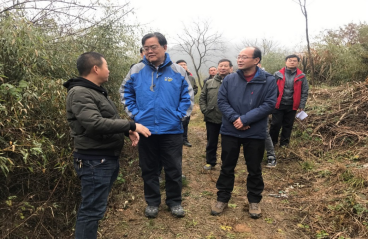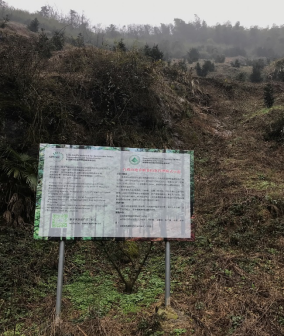
Hilly areas of southern China enjoy favourable humid and thermal conditions with great potential for productivity, although some areas have faced problems in terms of forest degradation and sustainable forest management. In 2017, APFNet launched the project “Demonstration on Sustainable Forest Management and Restoration in Hilly and Low Mountain Areas of Southern China” [2016P2-CAF] in Anhui and Zhejiang provinces in order to enhance forest management capacities and restore degraded forests with a focus on policies and technologies employed for typical hilly areas of southern China.
From 11 to 14 January 2019, an independent evaluation team visited Qingyang County in Anhui Province and Lin’an District in Hangzhou, Zhejiang Province for a mid-term evaluation (MTE) of project performance. After reviewing documents and conducting interviews followed by field visits to project sites, the project received positive feedback from the evaluation team.
To date, all project activities have made smooth progress. Experimental sample plots and control sample plots have been set up in the project area for long-term monitoring. Based on the guidelines for forest restoration and management operations, various activities on forest management and rehabilitation over a total area of 127 hectares have been carried out in two demonstration areas in Qingyang County and Lin’an District.
At the Anhui project site, tending and artificially promoted natural regeneration were conducted in 50 hectares of degraded forests through planting of Chinese torreya, Chinese fir and other local broad leaf species. Close-to-nature forest management was applied to enhance management of Chinese fir for cultivating large diameter timber. Intensive and sustainable management of bamboo forest was demonstrated through the development of non-timber forest products.

At the Zhejiang project site, the project focuses on livelihood improvement while promoting forest restoration. The application of the sustainable management model for Chinese torreya, a local economic species for harvesting nuts, in a rocky mountain area has shown its potential effectiveness for improving the livelihoods of the local community. “APFNet’s project is well implemented on the ground, and not only brings international experience to us but also practically benefits the farmers in the community,” a local farmer told the review team.
